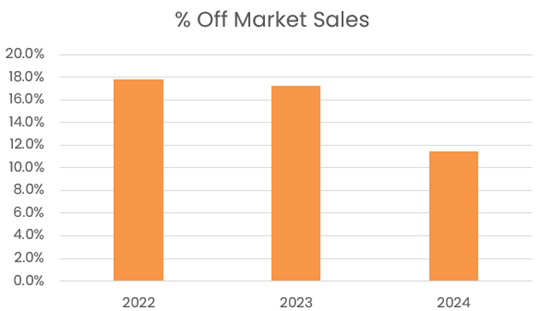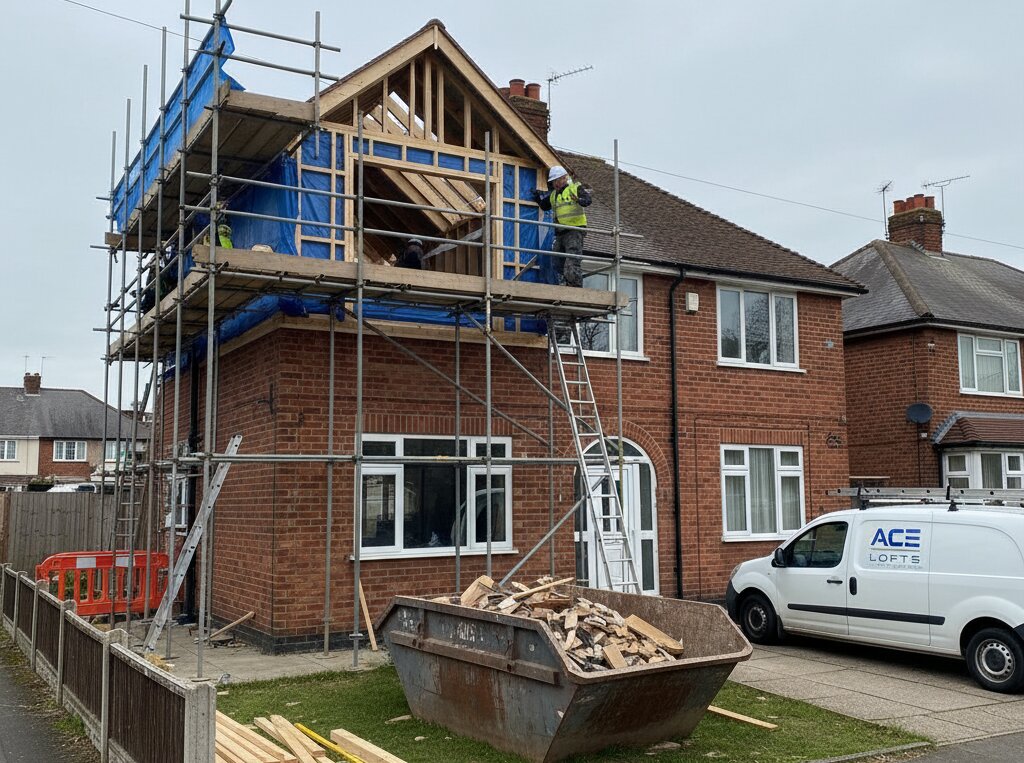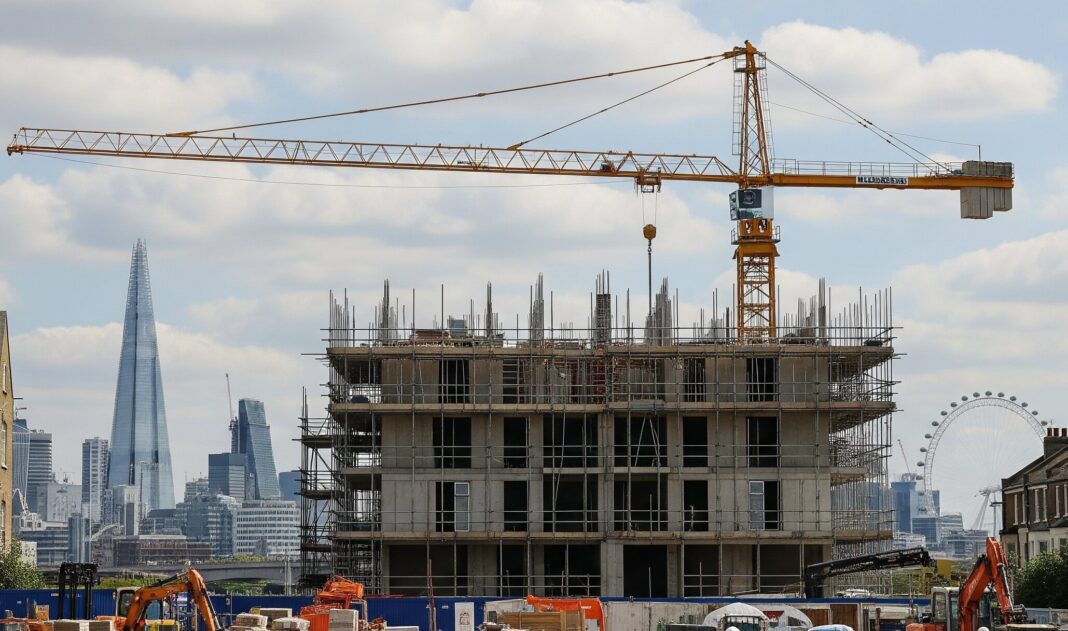More than one in six homes sold in England and Wales over the past two years changed hands privately rather than being listed on the open market, new data reveals.
Research from property data firm TwentyEA shows that 15.8% of all residential transactions between 2022 and 2024 were completed off-market – never appearing on property portals, estate agent websites, shop windows or auctions.
Instead, they were sold discreetly through buying agents, private investor networks, or direct introductions from estate agents’ existing client lists.
The latest findings, published in TwentyEA’s Property & Homemover Report, suggest that while off-market sales became commonplace during the post-pandemic housing boom, the trend is now fading fast. Off-market deals made up 17.8% of all sales in 2022, dipped to 17.2% in 2023, and fell sharply to 11.4% in 2024 — the lowest level in three years.
GREATER TRANSPARENCY
Analysts say the fall signals a shift towards greater transparency in the housing market. Rising stock levels and falling mortgage rates have increased competition among sellers, many of whom are returning to the open market to attract more buyers and achieve better prices.

Katy Billany, Executive Director of TwentyEA, says: “This year-on-year contraction points to a structural market recalibration.
“Supply grew by 10% in 2024 compared with 2023, alongside successive interest rate reductions, encouraging more sellers to come forward.
“In a buyers’ market, sellers need a full marketing package, professional photography, portal listings, and active promotion to secure a sale.”
DIVIDING LINE
The report also identified a sharp divide between the mainstream and luxury housing markets. Below £1 million, only 6.7% of homes were sold off-market, while above that threshold the proportion jumped to 20.1%.

The distinction highlights two very different markets: one driven by visibility and price sensitivity, the other by privacy and exclusivity.
Billany adds: “In a market where the average time to go SSTC now stands at 77 days – the longest in the past five years – sellers of homes under £1 million should question whether the off-market approach puts them in the best position to secure a sale.”
MARKET ACTIVITY AND PRICE REDUCTIONS
Across the wider housing market, conditions have remained broadly stable through the third quarter of 2025.
New property listings rose 1.7% year-on-year, while sales agreed increased 3.2%. A slowdown in exchanges recorded earlier in the year – caused by buyers rushing to complete before the Q1 stamp duty changes – has now levelled off.
Price reductions remain widespread, however, with 919,000 cuts recorded so far this year – the highest number on record and 16% up on 2024.
In total, 38.7% of homes that went on to sell this year had at least one price reduction, with the trend particularly pronounced at the top end of the market.
CAUTIOUS OPTIMISM
London continues to underperform on price resilience, with Inner London recording a 3 percentage-point rise in price reductions – the weakest regional showing.
Meanwhile, fall-throughs continue to rise, exceeding 82,000 in Q3.
Billany adds: “With 82,000 sales falling through in Q3 alone, we’re fully behind the government’s push to shake up the homebuying process. Waiting four months just to exchange contracts is far too long – no wonder buyers get cold feet, or unexpected issues crop up in surveys.
“A bit more upfront info at the start could really help smooth things out. As we head into the final stretch of the year, we’re cautiously optimistic.”
DAMAGE CONTROL

Chris Williams, Founder of Novus Strategy, the technology consultancy for the home buying and selling industry, says: “The big takeaway from this data, coming just days after the Government announced major homebuying reforms, has to be the sheer scale of the damage being inflicted on the property industry by fall-throughs.
“There have been 312,691 cancelled purchases in the last year according to TwentyEA/Ci, which is an absolutely eye-watering figure.
“Fall-throughs often occur due to the length of time it takes to complete a purchase, with changing circumstances, life events and long chains all exacerbating the problem.
“If we can reduce completion times and make the process more transparent, these numbers should fall sharply, as industry pilots have already demonstrated.”
BILLIONS WASTED
And he adds: “Abandoned purchases are responsible for billions of pounds wasted each year and the human cost of this disruption is also extensive.
“Behind every cancellation will be a family that can’t move into a larger home, a couple unable to move in together or a pensioner struggling to downsize.
“Industry suffers too, from housebuilders and estate agents to mortgage brokers and lenders all shouldering the cost of wasted effort and investment.
“The industry has been calling on the Government to mandate improvements.”
“The industry has been calling on the Government to mandate some of the improvements we need to see, and the far-reaching consultation revealed earlier this month was very welcome as it will inject some much-needed momentum.
“We’re already starting to see some of the green shoots of collaboration in industry that will deliver the transformation required, driven by organisations such as the Open Property Data Association (OPDA).
“All the different players involved in transactions are investing now in getting this right and the rewards will be extreme. It’s easily possible that transaction levels will reach a new, permanently higher plateau that everybody will benefit from.”









